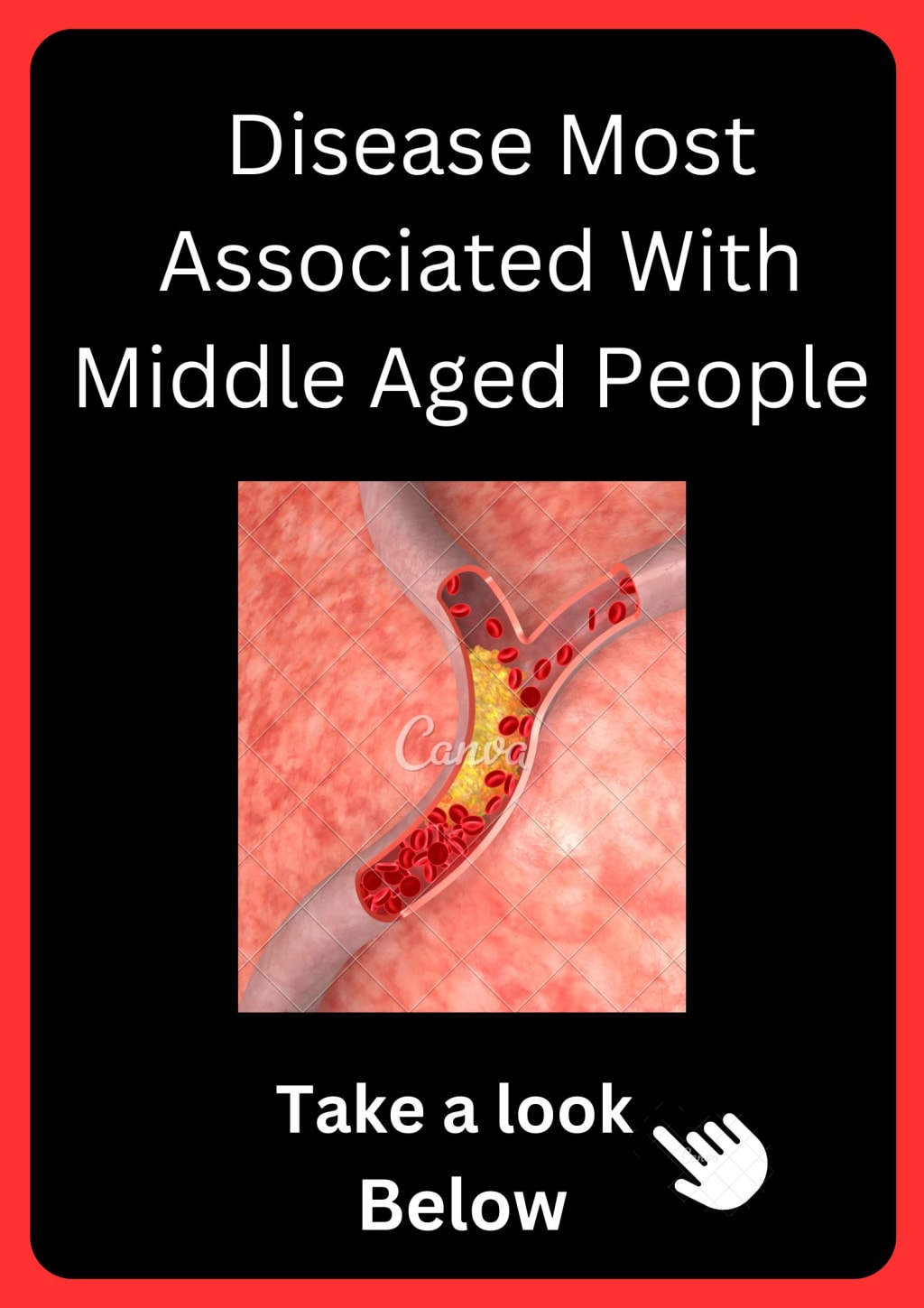Understanding High Cholesterol: Causes, Symptoms, Prevention, and Management
High cholesterol is a common health concern affecting both men and women globally. It plays a significant role in the development of cardiovascular diseases, which are leading causes of death. This comprehensive guide will delve into the causes, symptoms, prevention, and management of high cholesterol. Additionally, it includes links to helpful images and video tutorials for better understanding and practical tips.

What is Cholesterol?
Cholesterol is a fatty substance found in your blood. It is essential for building healthy cells, but high levels of cholesterol can increase your risk of heart disease. Cholesterol travels through your bloodstream in small packages called lipoproteins, which are made of fat (lipid) on the inside and proteins on the outside.
Types of Cholesterol
1. **Low-Density Lipoprotein (LDL)**: Often referred to as "bad" cholesterol. High levels of LDL can lead to plaque buildup in the arteries, causing them to harden and narrow.
2. **High-Density Lipoprotein (HDL)**: Known as "good" cholesterol. HDL helps remove LDL cholesterol from the arteries.
3. **Triglycerides**: Another type of fat in the blood. High levels of triglycerides can also increase the risk of heart disease.
Causes of High Cholesterol
Several factors contribute to high cholesterol, including lifestyle choices, genetic factors, and other health conditions.
Lifestyle Factors
1. **Unhealthy Diet**: Consuming high levels of saturated fats, trans fats, and cholesterol-rich foods can raise your cholesterol levels.
2. **Lack of Physical Activity**: Physical inactivity can lead to weight gain, which can raise cholesterol levels.
3. **Smoking**: Smoking damages the walls of your blood vessels, making them more susceptible to the accumulation of fatty deposits.
Genetic Factors
Genetics can play a significant role in your cholesterol levels. Familial hypercholesterolemia is a genetic disorder that results in high cholesterol levels.
Other Health Conditions
Certain health conditions can increase cholesterol levels, such as:
1. **Diabetes**: High blood sugar contributes to higher levels of a dangerous cholesterol called very-low-density lipoprotein (VLDL) and lower HDL cholesterol.
2. **Obesity**: Excess weight contributes to higher cholesterol levels.
Symptoms of High Cholesterol
High cholesterol itself does not cause symptoms. It leads to the formation of plaques in the arteries, which can eventually cause symptoms related to heart disease, such as:
1. **Chest Pain (Angina)**: This occurs if the arteries that supply blood to your heart (coronary arteries) are affected.
2. **Heart Attack**: A heart attack happens when plaques rupture and cause a blood clot, blocking blood flow to a part of your heart.
3. **Stroke**: Similar to a heart attack, a stroke occurs when a blood clot blocks blood flow to part of your brain.
Diagnosis of High Cholesterol
High cholesterol is diagnosed through a blood test called a lipid panel, which measures your levels of LDL, HDL, and triglycerides. It is recommended to have your cholesterol levels checked every 4-6 years, starting at age 20.
Prevention and Management of High Cholesterol
Preventing and managing high cholesterol involves lifestyle changes and, in some cases, medication. Here are some proven strategies:
Healthy Diet
Adopting a heart-healthy diet can significantly lower cholesterol levels.
1. **Eat Heart-Healthy Foods**: Include plenty of fruits, vegetables, whole grains, and lean proteins in your diet. Foods rich in omega-3 fatty acids, such as salmon, walnuts, and flaxseeds, are particularly beneficial.

- [Heart-Healthy Diet Video](https://www.youtube.com/watch?v=3QXeETNHR0Y)
2. **Limit Saturated and Trans Fats**: Reduce intake of red meat, full-fat dairy products, and processed foods. Instead, opt for healthy fats found in olive oil, avocado, and nuts.
3. **Increase Fiber Intake**: Soluble fiber, found in foods like oats, beans, lentils, and apples, can help reduce LDL cholesterol.
Regular Physical Activity
Regular exercise helps improve cholesterol levels by increasing HDL cholesterol while lowering LDL cholesterol and triglycerides.
1. **Aerobic Exercises**: Activities such as walking, jogging, cycling, and swimming are effective. Aim for at least 150 minutes of moderate-intensity exercise per week.

- [Exercise Tips for Lowering Cholesterol](https://www.youtube.com/watch?v=b53_CkWsJc8)
2. **Strength Training**: Incorporate strength training exercises at least two days a week.
Weight Management
Losing weight, if you are overweight, can help lower your total cholesterol and LDL cholesterol levels.
1. **Calorie Control**: Monitor your calorie intake and focus on nutrient-dense foods.
2. **Regular Exercise**: Combine aerobic exercise with strength training for effective weight loss.
Quit Smoking
Quitting smoking improves your HDL cholesterol level and benefits your heart health. Seek support from smoking cessation programs if needed.
- [Tips for Quitting Smoking](https://www.youtube.com/watch?v=ATuO9Gvldhs)
Limit Alcohol Intake
Drinking alcohol in moderation can have a beneficial effect on cholesterol levels. For women, this means up to one drink per day, and for men, up to two drinks per day.
Medication
In some cases, lifestyle changes alone may not be sufficient to control high cholesterol. Your doctor may prescribe medication to help manage your cholesterol levels.
1. **Statins**: These drugs block a substance your liver needs to make cholesterol, effectively lowering LDL cholesterol.
2. **Bile Acid Sequestrants**: These drugs bind bile acids, prompting your liver to use excess cholesterol to produce more bile acids, thereby lowering cholesterol levels.
3. **Cholesterol Absorption Inhibitors**: These medications reduce the amount of dietary cholesterol absorbed by your intestines.
- [Understanding Cholesterol Medications](https://www.youtube.com/watch?v=LMD9tyfnBrU)
Regular Monitoring
Keep track of your cholesterol levels through regular check-ups and blood tests. This helps ensure that your lifestyle changes and medications are effectively managing your cholesterol levels.
Importance of Cholesterol Management in Both Genders
Both men and women need to be vigilant about their cholesterol levels, but there are some gender-specific considerations.
Cholesterol and Men
Men typically have lower HDL cholesterol levels than women, increasing their risk of heart disease at an earlier age. Testosterone levels, which are higher in men, are also associated with lower HDL cholesterol.
Cholesterol and Women
Women usually have higher HDL cholesterol levels than men, especially before menopause. However, after menopause, women's LDL cholesterol levels tend to increase, raising their risk of heart disease. Hormonal changes during pregnancy can also affect cholesterol levels temporarily.
Gender-Specific Tips
1. **Men**: Focus on increasing HDL cholesterol through diet, exercise, and avoiding smoking.
2. **Women**: Pay attention to cholesterol levels, especially during and after menopause, and discuss hormone replacement therapy (HRT) with your doctor if needed.
Conclusion
High cholesterol is a significant risk factor for heart disease, affecting both men and women. Understanding the causes, symptoms, and ways to manage cholesterol is crucial for maintaining heart health. By adopting a heart-healthy diet, engaging in regular physical activity, managing weight, and making other lifestyle changes, you can effectively control your cholesterol levels and reduce the risk of cardiovascular diseases.
By staying informed and proactive, you can take control of your cholesterol levels and safeguard your heart health for years to come.
About the Creator
Enjoyed the story? Support the Creator.
Subscribe for free to receive all their stories in your feed. You could also pledge your support or give them a one-off tip, letting them know you appreciate their work.






Comments
There are no comments for this story
Be the first to respond and start the conversation.